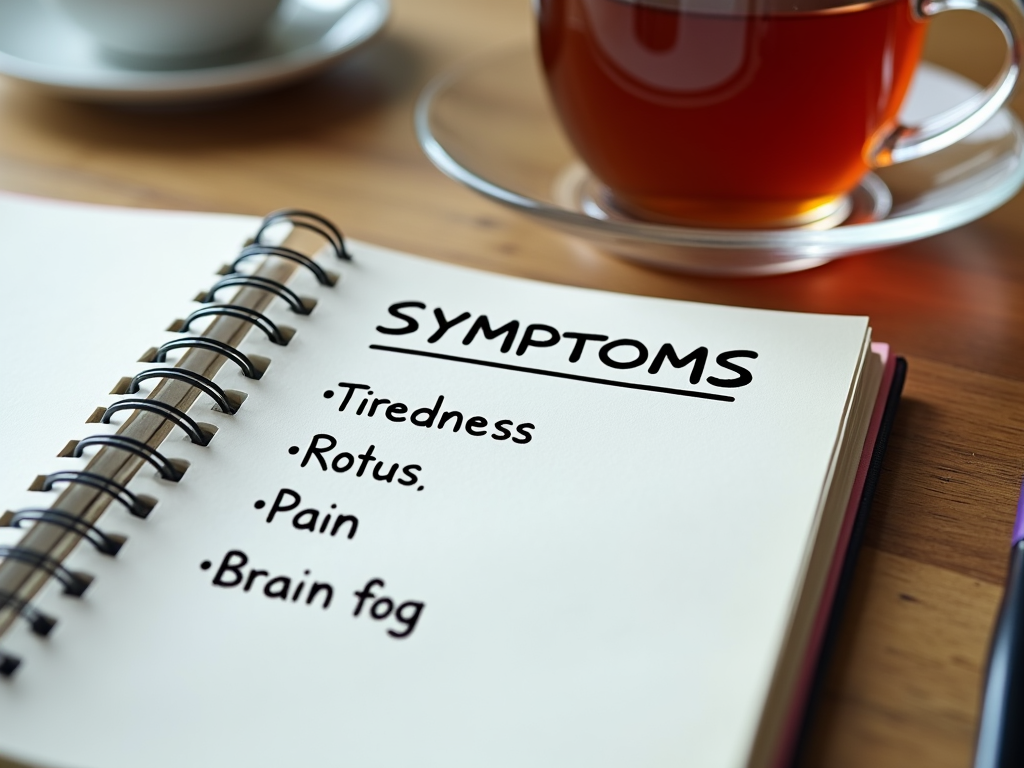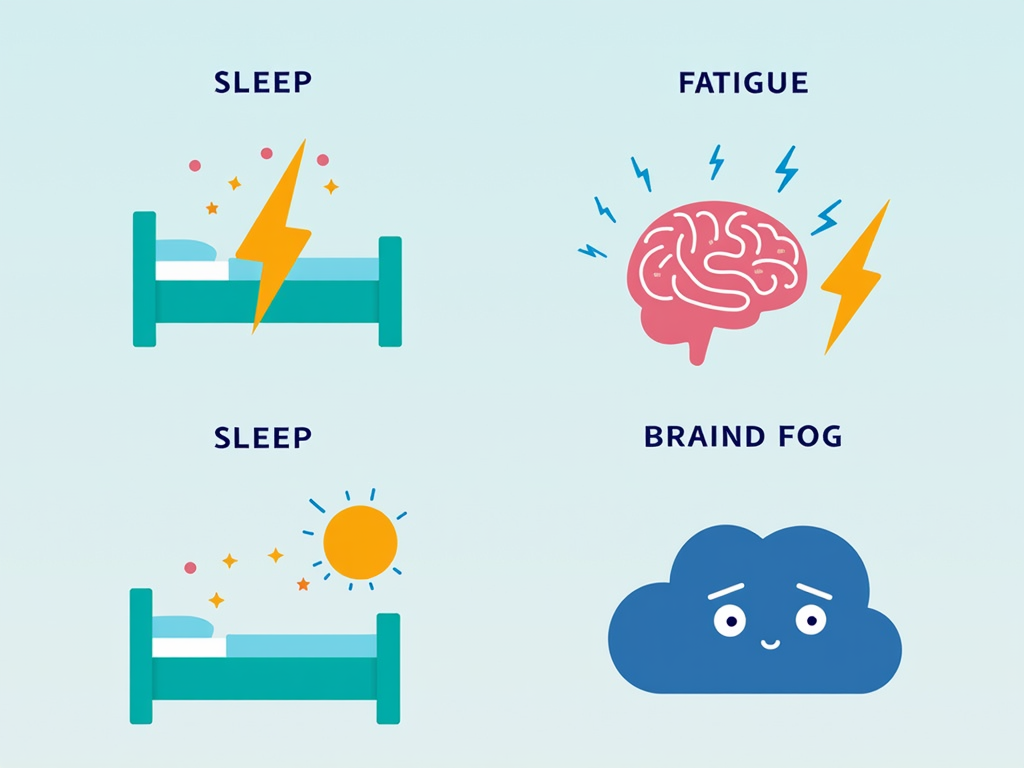Overview
Imagine waking up every day feeling like you haven’t slept a wink. For people with Chronic Fatigue Syndrome (CFS), this is their reality. CFS brings extreme tiredness that rest can’t fix, affecting millions worldwide. This article dives into the basics—what it is, how it feels, and ways to cope.

What is Chronic Fatigue Syndrome?
Chronic Fatigue Syndrome, or CFS, is a long-term illness that leaves you exhausted beyond belief. It’s not just feeling tired after a busy day—it’s a deep, draining fatigue that sticks around for months, even years. Doctors sometimes call it Myalgic Encephalomyelitis (ME), but CFS is the name most people recognize.
What sets CFS apart? The exhaustion doesn’t come from overworking yourself, and sleep doesn’t help. Doing simple things—like grocery shopping or thinking hard—can make it worse. It hits adults most often between 40 and 60, and women get diagnosed more than men.
Why It Matters
Understanding the Basics of Chronic Fatigue Syndrome isn’t just for doctors. It’s for anyone who wants to support a friend, family member, or even themselves. Knowing what’s going on helps take away some of the mystery and frustration that comes with this condition.

Symptoms of Chronic Fatigue
The main sign of CFS is feeling wiped out for six months or more, without another illness causing it. But it’s not alone—other symptoms tag along, making life tougher. Here’s what many people experience:
- Trouble sleeping or waking up still tired
- Achy muscles and joints
- Headaches that feel new or worse than before
- Brain fog—trouble remembering or focusing
- Sore throat or swollen glands
- Dizziness when standing up
These can come and go, or change in strength, which makes every day unpredictable.
How It Feels
Picture this: You’ve slept for hours, but your body feels like it ran a marathon. That’s Chronic Fatigue for you. Some days, even brushing your teeth feels like climbing a mountain. It’s not laziness—it’s your body saying, ‘I can’t keep up.’

What Causes CFS?
Nobody knows exactly what starts CFS, which is part of why it’s so tricky. Scientists have some ideas, though:
- Viruses: Infections like Epstein-Barr might kick it off.
- Immune System: Something might go haywire with your body’s defenses.
- Hormones: Trouble with stress or energy hormones could play a role.
- Genes: If it runs in your family, you might be more at risk.
Stress or a big life event sometimes seems to trigger it too. But here’s the thing—lots of people have these risks and never get CFS. It’s a puzzle we’re still solving.
Who’s at Risk?
Anyone can get CFS, but it’s more common in middle age and among women. If you’ve had a bad virus or deal with constant stress, your chances might go up. Still, it’s not a sure thing—CFS picks its targets randomly sometimes.

How Doctors Spot CFS
Diagnosing CFS isn’t simple. There’s no blood test or scan that says, ‘Yep, that’s it.’ Instead, doctors look at your symptoms and rule out other culprits like thyroid problems or sleep apnea. You need that intense fatigue for six months, plus at least four other signs—like brain fog or muscle pain—to get the CFS label.
It’s a process of elimination, which can take time. That’s why patience is key if you’re chasing a diagnosis.
Living with CFS
Life with CFS changes everything. Simple tasks—like cooking dinner or chatting with friends—can feel impossible. Many people have to slow down, pick what matters most, and let the rest slide. Imagine planning your day around tiny bursts of energy, knowing you’ll pay for it later if you push too hard.
Support helps a lot. Friends who get it, or groups where people share their stories, can make you feel less alone.

Managing CFS Every Day
There’s no magic fix for CFS, but you can ease the load. Doctors might suggest pills for pain or sleep, or therapy to handle the emotional side. Some try a slow build-up of exercise, though that doesn’t work for everyone. The trick is finding what fits you.
Lifestyle tweaks matter too—like eating well, cutting stress, and resting when your body begs for it.
Effective Sleep Strategies for Managing Chronic Fatigue
Sleep is a big deal with CFS, since it’s often broken or unsatisfying. Want better rest? Try these:
- Stick to a bedtime routine—same time every night.
- Wind down with a book or soft music, not screens.
- Keep your room dark and quiet.
- Skip coffee or soda late in the day.
A short nap can recharge you, but don’t overdo it—too long, and you’re wide awake at midnight.

Chronic Fatigue and Mental Health
CFS doesn’t just hit your body—it messes with your mind too. Feeling stuck or foggy all the time can spark sadness or worry. It’s tough when you can’t keep up with life like you used to. On the flip side, stress or low moods can make CFS symptoms worse—it’s a two-way street.
Talking to someone, like a counselor, or finding a group to lean on can lift that weight. Even small stuff—like deep breathing—helps.
CFS vs. Other Conditions
CFS gets mixed up with other illnesses because tiredness shows up everywhere. Here’s a quick look:
| Condition | Key Difference |
|---|---|
| Fibromyalgia | More focus on widespread pain |
| Depression | Fatigue tied to mood, not body |
| Chronic FPIES | Food allergy in kids, not CFS |
Chronic FPIES Symptoms, for example, involve vomiting from food triggers in young kids—not the same as CFS’s full-body exhaustion.

Summary
Chronic Fatigue Syndrome is more than just being tired—it’s a life-altering condition with no easy answers. From crushing fatigue to brain fog, it challenges everyone it touches. But by understanding the basics, trying sleep tricks, and caring for your mental health, you can find ways to manage. It’s about taking it one step at a time.
Discuss Here